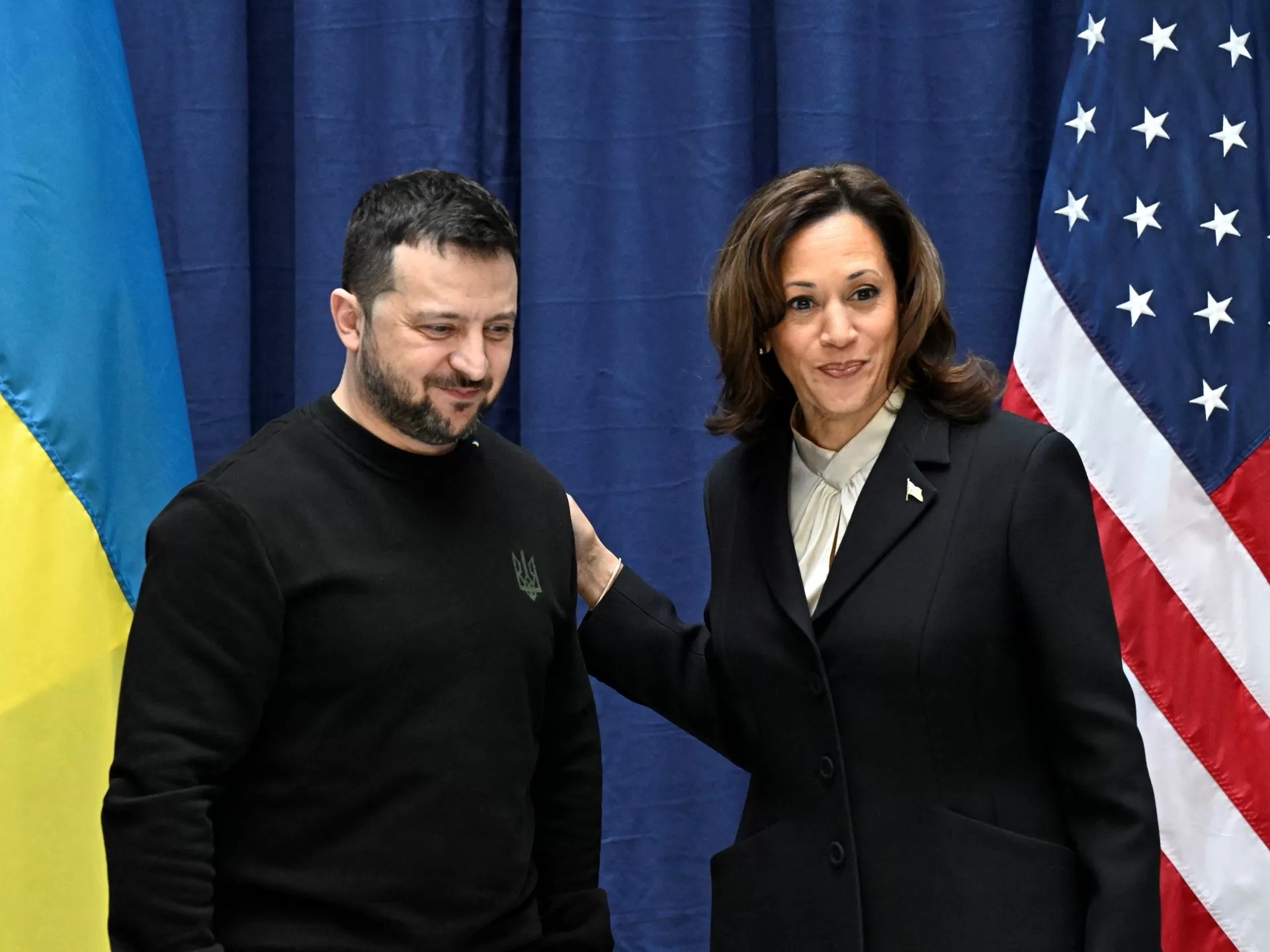US Vice President Kamala Harris on Monday cemented her status as the frontrunner in the race to succeed President Joe Biden as the Democratic Party’s nominee for the November presidential election, winning a wave of endorsements from governors, elected officials and state-level leaders.
The most important among those endorsements was Biden’s ringing support for her candidature, which he made clear right as he announced, on Sunday, that he would no longer be seeking the party’s nomination, following weeks of pressure to step aside.
Harris will still need to formally win the nomination, likely at the Democratic National Convention in August, and not all of the potential challengers for the candidature have fallen behind her — so far, at least.
Yet the 59-year-old Harris could be on track to becoming the first Black woman to lead a major party’s presidential ticket, bringing her position on key global issues under scrutiny.
So what has Harris’s stance been on major foreign policy matters and countries?
Harris’s stand on Israel’s war on Gaza
Analysts expect Harris, if elected, to largely continue Biden’s approach to the Gaza war: She has repeatedly pledged support for Israel’s security and self-defence, while expressing sympathy for Palestinian civilians in Gaza.
Harris has defended Israel’s right to self-defence. In December 2023, she said during a briefing “Israel has a right to defend itself. And we [Biden and Harris] will remain steadfast in that conviction” and “we support Israel’s legitimate military objectives to eliminate the threat of Hamas”.
This week, Harris is expected to meet Israeli Prime Minister Benjamin Netanyahu during his visit to the US.
At the same time, in the December briefing, she said: “As Israel pursues its military objectives in Gaza, we believe Israel must do more to protect innocent civilians.”
On March 4, Harris called for an immediate truce in Gaza, adding that Israel needs to improve the flow of humanitarian aid in the enclave.
The death of seven humanitarian workers from World Central Kitchen in Gaza, including one American, is a devastating tragedy. The investigation must be swift, and steps must be taken to ensure this does not happen again.
Israel must do more to protect aid workers who are…
— Vice President Kamala Harris (@VP) April 3, 2024
On April 14, Harris posted on X a day after Iran’s attacks on Israel, saying “Our support for Israel’s security is ironclad.”
President Biden and I met with our national security team following Iran’s attacks against Israel. Our support for Israel’s security is ironclad, and we stand with the people of Israel in defense against these attacks. pic.twitter.com/jG8La2mHnk
— Vice President Kamala Harris (@VP) April 14, 2024
What about the Russia-Ukraine war?
Consistent with Biden’s stance, Harris strongly backs Ukraine’s self-defence efforts against Russia. Harris has also been — just like Biden — a committed supporter of NATO.
In June, she met Ukrainian President Volodymyr Zelenskyy at the Summit on Peace in Ukraine in Switzerland.
“Russia’s aggression is not only an attack on the lives and the freedom of the people of Ukraine, it is not only an attack on global food security and energy supplies,” she said at the summit’s opening plenary.
At the summit, Harris also announced that the US would disburse $1.5bn through the US Agency for International Development and the US Department of State, to strengthen Ukraine’s energy sector.
At the Munich Security Conference in February, she rebuked Russia’s war on Ukraine and pledged “ironclad” US respect for NATO’s Article 5, under which an attack on any one member of the alliance requires all other nations in the grouping to join the conflict.
Where does Harris stand on China?
Harris is expected to remain consistent with Biden’s policy on China — focusing on curbing Chinese influence, especially in Asia.
In September, she attended a summit of the Association of Southeast Asian Nations (ASEAN) in Indonesia’s capital Jakarta. During the summit, she accused China of imposing its territorial claims in the disputed South China Sea on smaller neighbours. Biden also assigned Harris to visit Japan and South Korea, key allies in the region.
During the vice-presidential debate in 2020, she criticised former President Donald Trump’s tariffs on Chinese imports, accusing the Republican of losing a trade war with China and as a result, losing hundreds of thousands of jobs — though some analysts say the jobs were lost because of COVID-19, not Trump’s policies. These tariffs have mostly remained in place during the Biden administration.
Harris has also backed Taiwan, and is expected to continue if she becomes president. In September 2022, she pledged “We will continue to support Taiwan’s self-defence, consistent with our long-standing policy”.
What is her stance on India?
Harris’s position on India has seen a shift over the past five years.
Time and time again during public appearances, the daughter of an Indian-born mother and a Jamaican-born father has mentioned her Indian heritage and how important the country is to her.
In 2019, Indian Prime Minister Narendra Modi revoked Article 370, ending the semi-autonomous status of Indian-administered Kashmir. Harris rebuked this move, saying “We have to remind the Kashmiris that they are not alone in the world.” She was a senator from California at the time, and a potential Democratic hopeful for the 2020 election.
However, when Biden came into office, Harris’s approach towards India saw a change. In 2021, she had a public meeting with Modi and praised India’s role in producing COVID-19 vaccines.
The US and India share common concerns over China, making India a strategic partner for the US in Asia. Biden has forged a series of defence and technology agreements with Modi during his time in office.
In 2023, Harris hosted Modi at a state luncheon where she thanked the Indian PM for his “role of leadership to help India emerge as a global power in the 21st century,” lauding his leadership of the Group of 20 summit last year.
